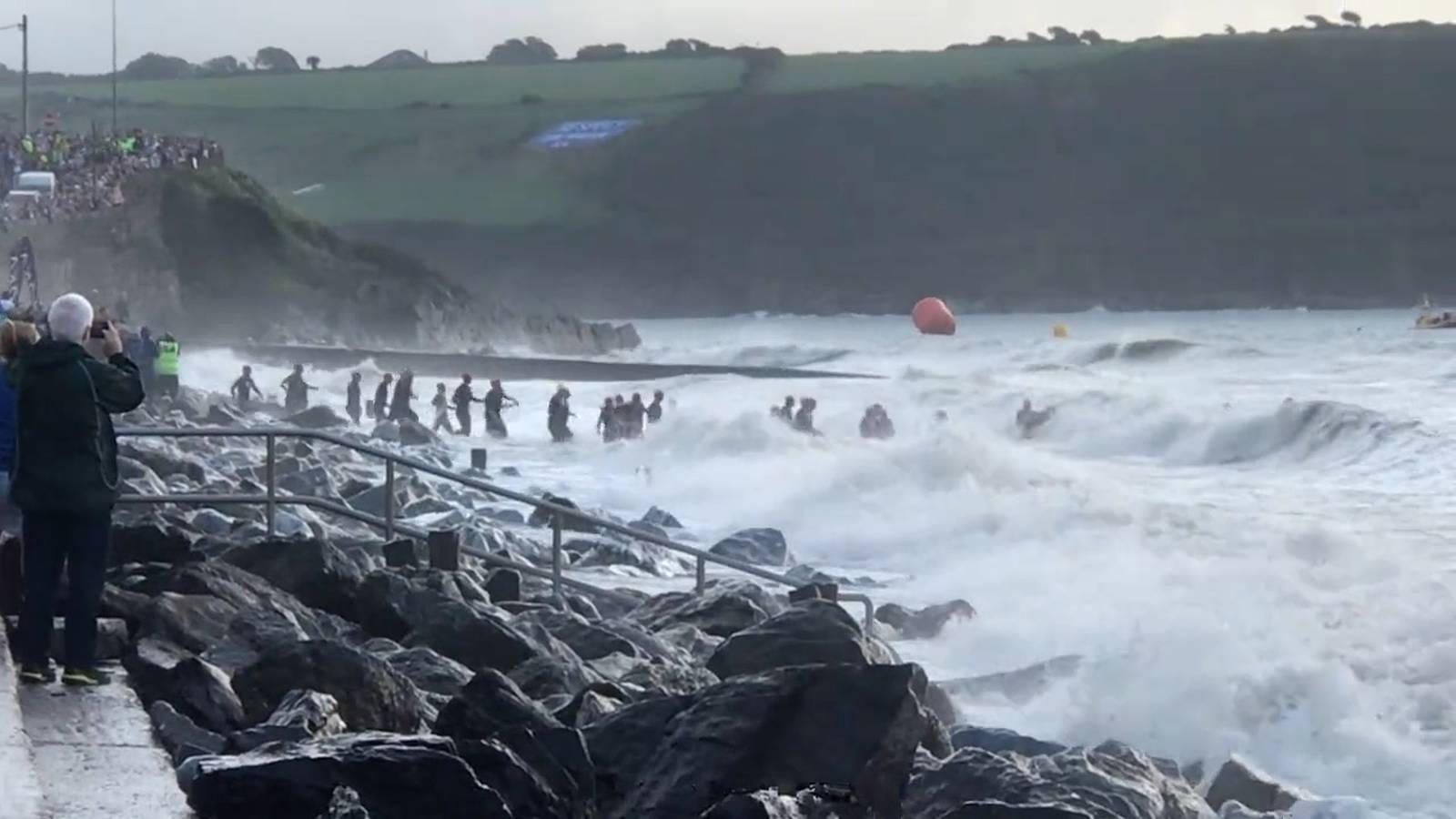Brendan Wall was 45 years old and was described by his employers as a “gentleman”. From Co Meath, he was a graduate of Trinity College Dublin, and he also received an MBA in the University of Hull. Living in the UK and working as a sales director of Top Tubes, he was engaged to his fiancé Tina.
Ivan Chittenden was 64 years old and from Canada. He ran six of the world’s major marathons and completed a number of triathlons. “Ivan was in the shape of his life. He kept getting faster as he got older,” his coach Lisa Bentley said last week.
Ahead of an Ironman event in Youghal, Co Cork last week, both men, along with 2,000 more participants, signed a waiver form that warned of a risk of “discomfort, illness, injury and even death”.
The waivers informed participants that they “will assume full and complete risk and responsibility for any discomfort, illness, injury or accident which may occur … during the event, while you are on the premises of the event or while you are travelling to or from the event”.
Last Sunday morning, Brendan Wall and Ivan Chittenden died in separate incidents during the 1.9km swim section of the Ironman event on Claycastle Beach.
It was a tragedy.
But a week later, it is a tragedy that is producing more questions than answers.
And the key question that a vast majority of people who have viewed the video footage of the event, disturbing wave after disturbing wave, are asking is quite simple: Why did no one definitively call a halt to the event?
The event was organised by Ironman, a US company. It is not a fledgling business. It is part of global conglomerate. Advance, its privately owned US owner, controls the Conde Nast publishing empire. It has skin in the game with Warner Brothers.
According to its promotional blurb, “the IRONMAN Group is the largest operator of mass participation sports in the world and provides more than a million participants annually the benefits of endurance sports through the company’s vast offerings”.
In its statements so far, Ironman has said that it determined that “water conditions” were safe on Sunday but that it had opted to shorten the swim. A precaution, it said.
The governing body for triathlons in Ireland, Triathlon Ireland, has a different interpretation of events. In fact, its view is completely contrary to the organiser’s.
On Monday, a day after the tragedy, it issued a statement. It said: “Due to adverse conditions on the day, Triathlon Ireland technical officials confirmed to the race organisers that it was not possible to sanction the race.”
Not so, according to Ironman, the organiser, who countered that Triathlon Ireland’s decision not to sanction the race was communicated only “several hours after the swim was completed”.
The war of words continued with Triathlon Ireland insisting that the decision was confirmed to organisers “before the start of the race”.
Ironman once again disputed this: “We stand by the details in our last statement.”
Next up was Cork County Council, a significant sponsor of the event, which said that Ironman was the owner of the event had “sole responsibility” for its management and coordination.
“This responsibility includes to run the event with due care, skill and attention,” it said. “The responsibility of Ironman extends to providing all race-related equipment, supplies, personnel (including volunteers and a local race director), training of personnel (including volunteers), Racecourse set-up, route determination and design and all other technical and operational aspects of the race.”
Simon Harris, the higher education minister, summed it up best last week when he said that the disagreement around the facts were “unedifying”.
So, let’s step back for a moment and examine what we know. The governing authority of the sport, which receives state funding, maintains that it had issues. The organiser, a global franchise that is part of an international conglomerate, argues otherwise while conceding that it reduced the swim element of the race due to the weather.
The council, who sponsored the for-profit event, believes it is a matter for the organiser.
As The Irish Times reported last week, Sport Ireland had nothing to add to a Department of Sport statement that said the Youghal race was organised privately. In the statement, the Minister of State for Sport Thomas Byrne asked “Sport Ireland to liaise with Triathlon Ireland” about the events and also to provide “any suitable support” required.
The deaths of Brendan Wall and Ivan Chittenden are a tragedy. But the fallout, as Simon Harris rightly said, is unedifying.
*****
Elsewhere last week, Francesca interviewed High Court President David Barniville, who has been a vocal advocate of Ireland for Law, the plan to make Ireland a post-Brexit centre of legal services. He explained how the judiciary can help make that a reality.
Alan Moore has been a tax official, a tax adviser, a tax educator, a tax writer, and now, at a time when most people of his age are retiring, an entrepreneur. I spoke to him about tax scams, raising funds, and the future of accountancy.
Phoenix Equity Partners has bought a significant stake in Nostra, the Irish IT services firm. Nostra’s CEO Kevin O’Loughlin explained the origins of the deal, and how he plans to use the funds to expand the business.
Each year, 24 emerging businesses spend 24 hours with seasoned entrepreneurs at the Entrepreneur Experience, an event that The Currency has long supported. As the deadline for applications nears, co-captain Jim Barry talked to Tom about this year’s event, learning from others and the future of his own eponymous retail business.


